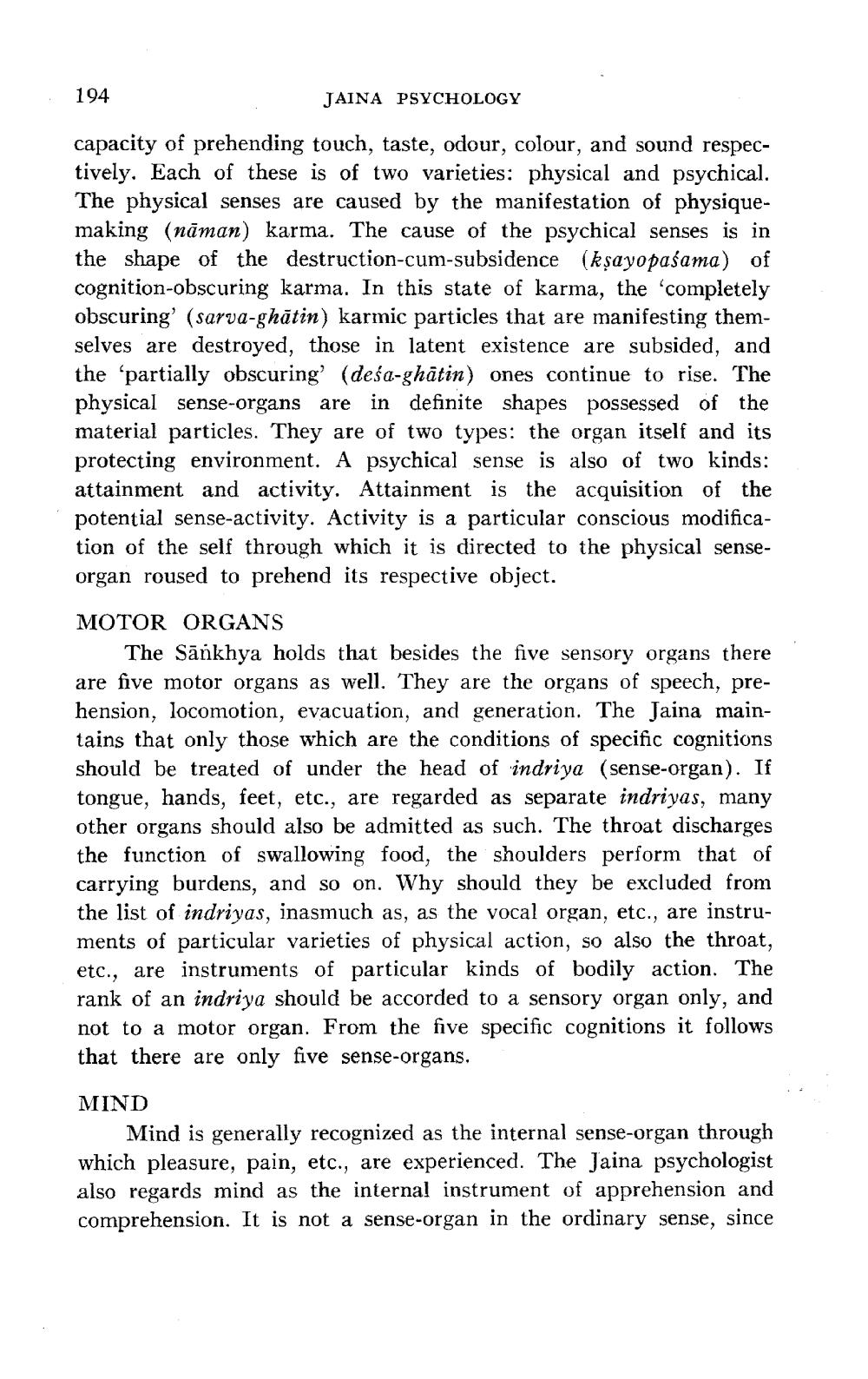________________
194
JAINA PSYCHOLOGY
capacity of prehending touch, taste, odour, colour, and sound respectively. Each of these is of two varieties: physical and psychical. The physical senses are caused by the manifestation of physiquemaking (nāman) karma. The cause of the psychical senses is in the shape of the destruction-cum-subsidence (kṣayopasama) of cognition-obscuring karma. In this state of karma, the 'completely obscuring' (sarva-ghātin) karmic particles that are manifesting themselves are destroyed, those in latent existence are subsided, and the 'partially obscuring' (desa-ghatin) ones continue to rise. The physical sense-organs are in definite shapes possessed of the material particles. They are of two types: the organ itself and its protecting environment. A psychical sense is also of two kinds: attainment and activity. Attainment is the acquisition of the potential sense-activity. Activity is a particular conscious modification of the self through which it is directed to the physical senseorgan roused to prehend its respective object.
MOTOR ORGANS
The Sankhya holds that besides the five sensory organs there are five motor organs as well. They are the organs of speech, prehension, locomotion, evacuation, and generation. The Jaina maintains that only those which are the conditions of specific cognitions should be treated of under the head of indriya (sense-organ). If tongue, hands, feet, etc., are regarded as separate indriyas, many other organs should also be admitted as such. The throat discharges the function of swallowing food, the shoulders perform that of carrying burdens, and so on. Why should they be excluded from the list of indriyas, inasmuch as, as the vocal organ, etc., are instruments of particular varieties of physical action, so also the throat, etc., are instruments of particular kinds of bodily action. The rank of an indriya should be accorded to a sensory organ only, and not to a motor organ. From the five specific cognitions it follows that there are only five sense-organs.
MIND
Mind is generally recognized as the internal sense-organ through which pleasure, pain, etc., are experienced. The Jaina psychologist also regards mind as the internal instrument of apprehension and comprehension. It is not a sense-organ in the ordinary sense, since




